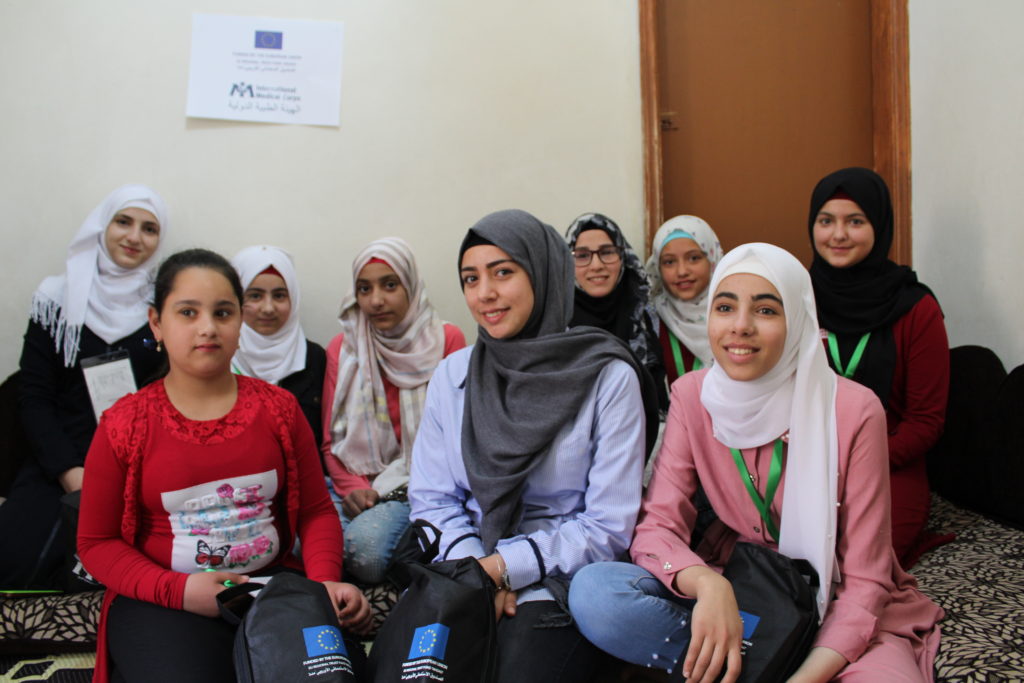Alaa is a 14-year-old Syrian refugee who lives in a small village in the Bekaa Valley. When Alaa’s family came to Lebanon eight years ago, she was only six years old. Before fleeing the war, Alaa stopped going to school for a full year. Like so many other children, it wasn’t safe for her to go. Upon coming to Lebanon, Alaa lost another year of education because she changed schools. Finally, for Alaa to be fully caught up with her peers, her mother decided to properly invest in her education and pay for high-quality classes.
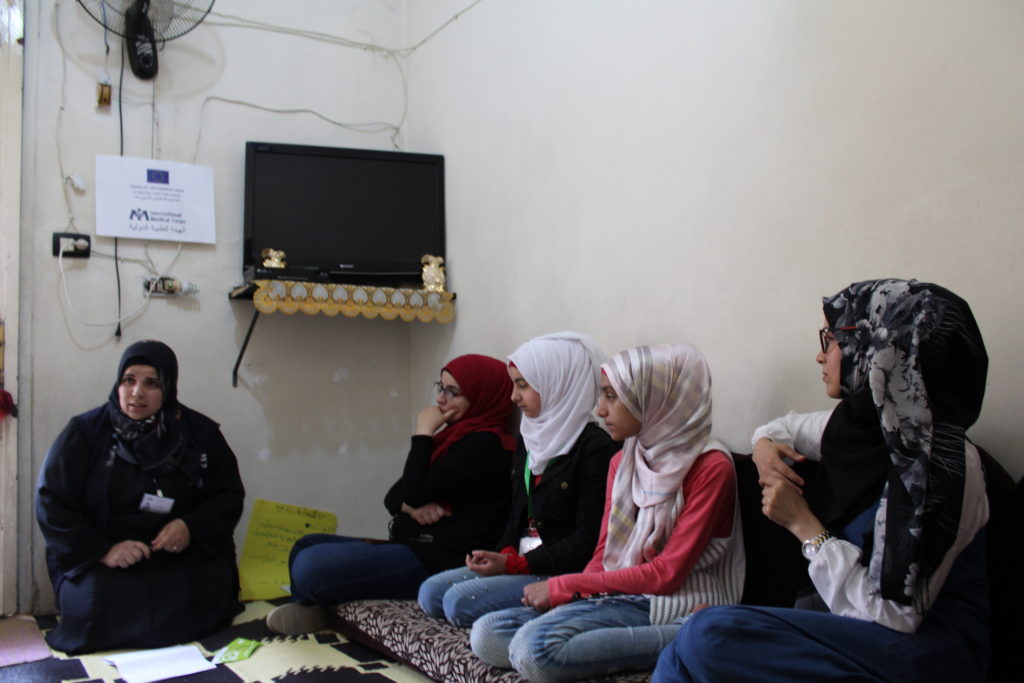
Alaa’s mother, Hanadi, is helping with another type of education, too—ensuring that her daughter is a member of a community health club established by International Medical Corps. Hanadi, who was a school teacher in Syria, has been volunteering with International Medical Corps for the past two years. She works in central Bekaa as a community health outreach volunteer, and got involved in the health club as part of the community health program.
Community health clubs educate members of different ages and genders about how to achieve positive health and well-being through a series of awareness sessions and activities. Members meet twice per week over a period of two to three months, and discuss such topics as non-communicable diseases, nutrition, vaccination promotion, pre and postnatal care, chronic diseases, newborn care, sexual and reproductive health, and mental health.
Alaa considers herself lucky because her mother has such an important job. She says, “I learned and continue to learn so much about how to take care of myself from my mom. Other girls my age don’t often have that opportunity.”
On a sunny warm day in May, Hanadi is hosting the health club in her home. She formed this chapter of the club about two months ago to serve teenage girls—ranging in age from 13 to 17. So far, they have had all their sessions at Hanadi’s home, which is close to everyone. Hanadi is known as the go-to person who’s always eager to help vulnerable Lebanese and Syrian refugees alike. Parents and the community trust her.
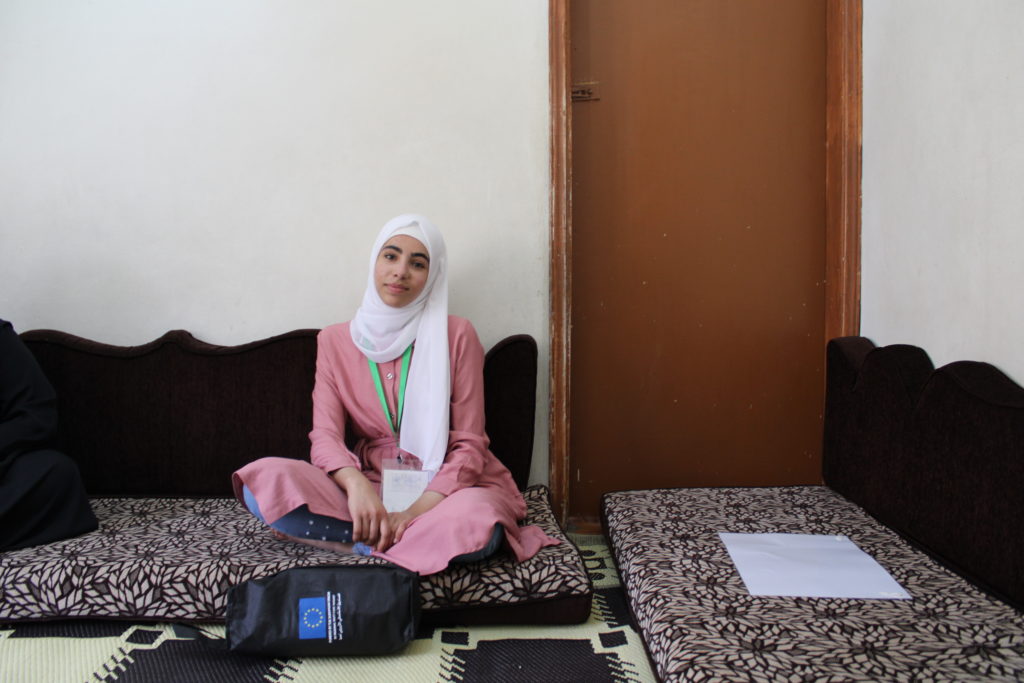
Alaa and her peers have many misconceptions about healthcare in general, and reproductive health in particular. Hanadi starts the session by asking a few questions about the chosen topic of the day: menstruation and personal hygiene.
Hanadi’s first question is, “Are girls allowed to shower when they’re menstruating?” Most of the teenagers shake their heads: “No, girls aren’t allowed to shower during that time of the month.” This misconception, passed on from older generations, stems from a belief that women are “impure” and their blood is “bad” while menstruating, and that it’s better to wait until the cycle is over for them to shower and purify themselves again. They also believe that menstruation is equivalent to being sick and that sick people don’t—or shouldn’t—shower.
Hanadi clearly explains why this is incorrect, telling the young women that it’s important to shower every day. She also explains what hygiene products to use and how to use them, explaining that menstrual pads should be changed every four to six hours. She advises the young women to use cotton-based pads so they don’t expose themselves to infections.
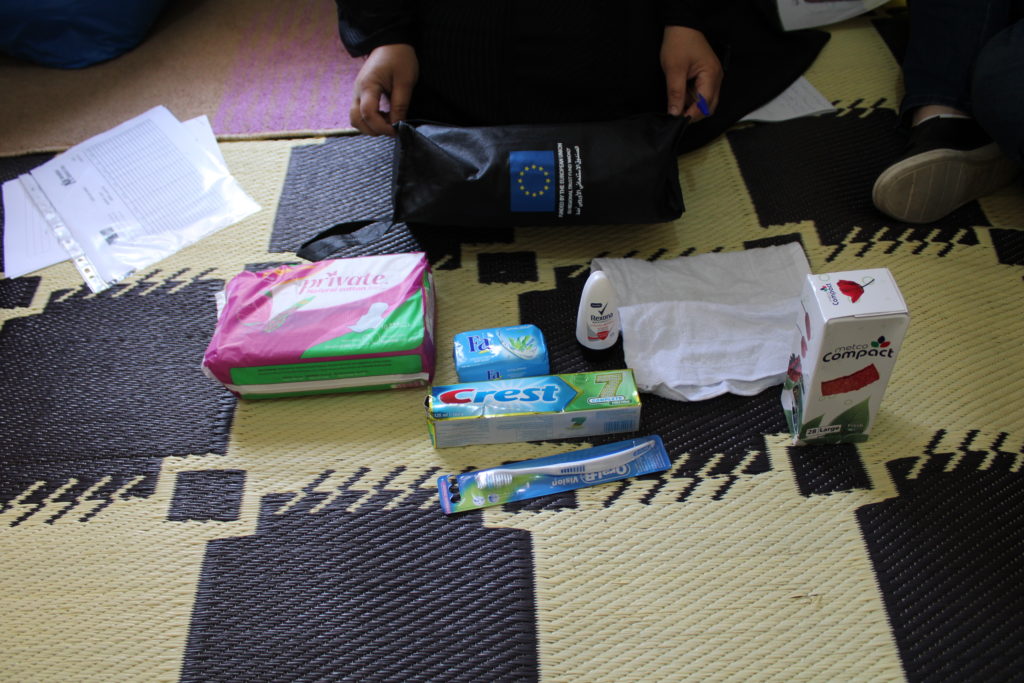
At the end of this session, Hanadi presents each girl with a hygiene kit that includes pads, soap, a toothbrush, toothpaste, a deodorant stick and some washcloths.
Later, Alaa tells us about her experience with her first period. She said she was lucky to have her mother around to explain how the female body works, and to show her how to take care of herself and her hygiene. She says, “I am lucky because my mother showed me. A lot of girls my age can’t even discuss the topic with their mothers. It’s considered a taboo.”
Rama is a 17-year-old club member who says that she has really benefited from all the sessions. She explains,
“I had so many misconceptions about women’s health in general, and about menstrual hygiene in particular. I am so glad I participated in these sessions.”
Rama speaks of her experience in these clubs as not only enriching in terms of acquiring positive healthcare information but also as a chance for her to socialize in an informal educational setting with some of her peers and friends. She says that “these sessions brought me closer to my friends. We’re sharing information but also discussing important issues and topics that are real and significant to us.” The sessions also touch on such topics as bullying, child marriage and mental health, to name a few.
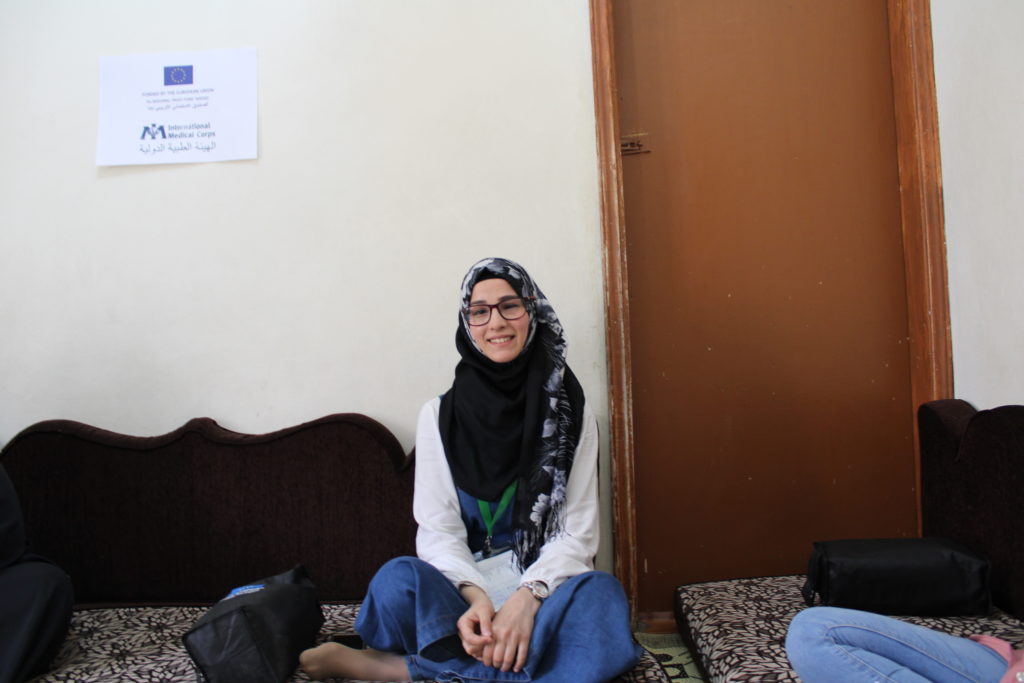
Like Alaa, Rama wishes to continue her education, explaining that “girls need education so they can have better prospects in the future.” Despite the fact that she also missed a few years of school due to her family’s dire financial situation, she wishes to study medicine and become a pediatrician.
The community health program is part of a project called Reducing Economic Barriers to Accessing Health Services in Lebanon (REBAHS), funded by the European Regional Trust Fund in response to the Syrian Crisis, known as the EU “Madad” Fund. It is implemented by a consortium led by International Medical Corps in partnership with Première Urgence – Aide Médicale Internationale Lebanon and Fundación Promoción Social.
